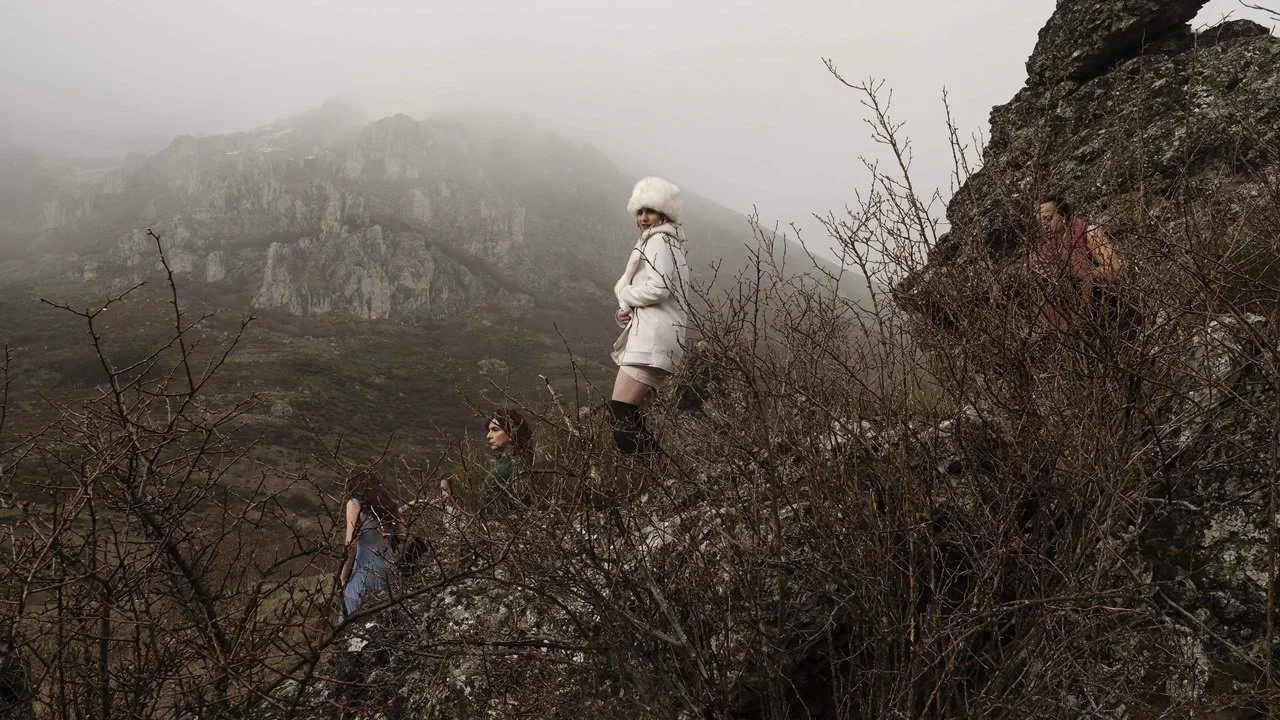SIFF Advance: SEDIMENTOS
Directing: A
Writing: A
Cinematography: A-
Editing: A+
There’s a moment in the Spanish documentary Sedimentos, the scene that gives the film its name, in which the six trans women who are the subjects of the film visit a geological formation, sort of cross section of land revealing the difference of colors between layers of sediments. It becomes immediately clear that this is a metaphor, for the endless depths of these six women, with a wildly varied range of perspectives, attitudes and experiences. It does appear that all of them are white, and an intricately intimate portrait like this would be even richer with other racial backgrounds included, but that aside, this group, even among only six, is unusually diverse.
It’s almost astonishing that this is even a documentary, the editing is so spectacular, creating a narrative that makes it very easy to mistake this for a narrative feature. Even the cinematography is quite good, which is unusual for documentaries, particularly of the sort in which the director and crew just sit back and disappear into the backgrounds of these ladies’ environments, giving us as an audience a unique sense of being a fly on the wall.
Indeed, I do think it’s useful to know beforehand a little bit about how Sediments was made. I found myself wondering, is the director trans, or even a woman? Nope: he’s Adrián Silvestre, a Barcelona-based director who connected with Spanish trans organization I-Vaginarium, which provides information and resources for trans women considering vaginoplasty. His intent was to create a documentary film portrait of trans women that stands apart from the longstanding cliches of trans representation in other films.
And boy, does he do it here, with stunningly intimate results, finding six women who were comfortable with cameras being present, and possibly recording, during any and all moments of a group trip to the rural town in the Spanish province of León. Starting with workshops before filming began, to get them comfortable with the filming process, ultimately they become so completely comfortable with the presence of the single camera Sylvestre is using, you would never know they were even conscious of it while watching the film. This is precisely why it’s useful for us as audiences to know how the production came together.
So, with this objective separation, the camera never judging or commenting, we are subject to six unique individuals who are solely themselves, who have moments of both joy and tension, and yield moments of deep intimacy both emotional and physical (not in terms of sexual activity, but certainly some frank nudity). These women are unafraid to express themselves and to confront each other when they feel it necessary, but they also don’t hold any grudges. Getting to know each other like this is bound to be messy, particularly with the range of backgrounds, experiences, and crucially, stage of transitioning.
One woman, Cristina, is in her fifties only only recently began her transition process; she’s the only one consistently wearing an obvious wig. Yolanda, on the other hand, never reveals her age but can’t be far from Cristina, yet she’s a seasoned veteran of the trans experience, having paid her dues in youth in a way the two twentysomething young women present can’t quite directly relate to. She even has a gravelly voice and a tracheostomy in her neck from an earlier cancer surgery. There is particularly protracted tension between Cristina and Yolanda, as Yolanda tires of Cristina’s oversharing in a way that that attempts to separate herself from the others; Yolanda calls her an egomaniac and Cristina dwells on this for a long time, asking the opinion about it in turn from all the other women. Another woman often sits back quietly, drawing portraits of the others. Ultimately, though, Yolanda helps Cristina make her bad wigs . . . a little better.
Sediments has a quality to it that is reminiscent of Robert Altman films, with its focus not just on dialogue but on overlapping conversations. Except in this case, they are real, neutrally observed and recorded. Whether this is compelling is a matter of taste, I suppose, but in my view the context alone makes it deeply so. It’s not so much just recordings of ordinary conversations, as the editing creates a rich narrative of six women from as many walks of life, bonding with each other.
We’ve had the privilege in recent years of seeing films and television shows that revolve around the lives of trans characters. But, this may be the first time I can recall where all of the characters are trans, and even though they still clearly move through a world of cisgender people—we meet the parents of one of them—they are all comparatively incidental, none of them quite even making it to “supporting character” status. This about these six trans women and these women only. The closest we come even to meeting a boyfriend is a blush-inducing moment in which one of the elder women asks a cute waiter at a restaurant if he’s single and attempting to get him to connect with the clearly embarrassed younger woman at the end of the table. These woman talk about the other people in their lives, and experiences from their pasts, but with the brief exception of the aforementioned pair of parents, we never see them.
For one weekend, Sylvestre’s camera follow just these six women around, and the results are moving and profound. It’s difficult to imagine a film like this getting done with such great success in the U.S., at least not one directed by a cisgender man. Maybe in a few years, but it doesn’t feel like even progressive Americans are quite ready for the kind of frank intimacy on display here. Yet, anyone who sees this film will be enriched by it.
An intimiate weekend well worth spending.
Overall: A

